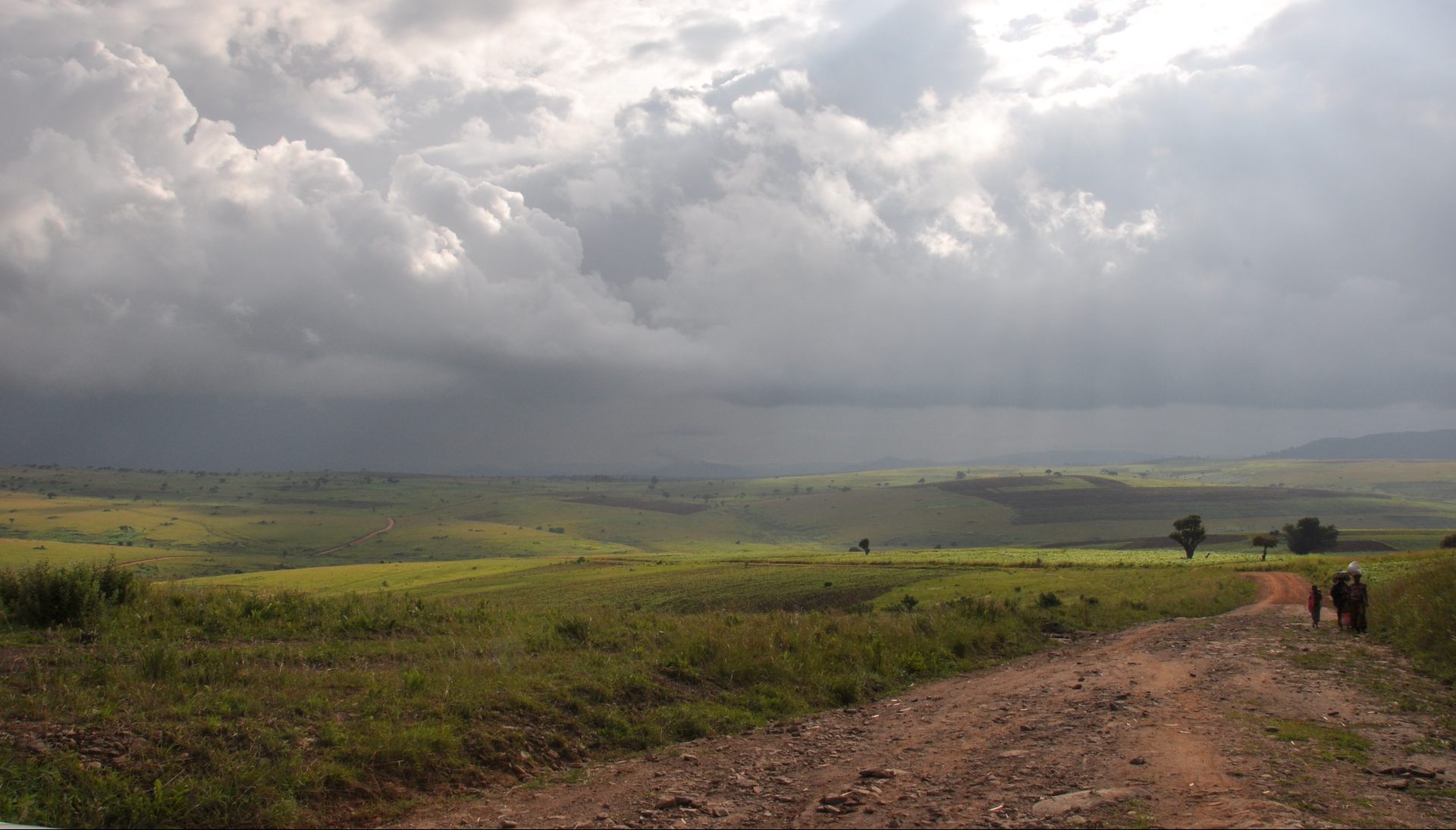
Untangling Tanzania’s Stubbornly High Maternal Mortality Rates
Adrienne Strong’s award-winning book reveals the challenges faced in the country's maternity wards — and helps bring life back to them
Tucked between the blue corridors of Mawingu Regional Hospital, in the town of Sumbawanga, Tanzania, is a maternity ward. Some days, as time slowly passes by, nurses can be seen idly finding tasks to do after their morning huddle. Other days, it can feel as if there is an infinite amount of work to be done and patients to help — and never nearly enough staff on hand.
In the midst of all this, through annual trips starting in 2012, was Adrienne Strong, who is today an assistant professor in the Department of Anthropology. Her purpose was to figure out what was causing the unusually high figures in maternal deaths reported in Tanzania’s federal “Demographic and Health Survey” in 2010. As a guest, she came with the intention to observe. But she would quickly learn about the ward’s challenges firsthand, as she recounts in the book Documenting Death: Maternal Mortality and the Ethics of Care in Tanzania.
“Listen: If you’re going to be here, you need to help out,” Gire*, a senior nurse-midwife, told her.
“I don’t know how to do anything,” Strong replied.
“Well, I’m going to teach you and then you will know,” Gire said.
In Documenting Death, Strong untangles the daily problems and care practices that patients and health care workers managed in Mawingu Regional Hospital’s maternity ward. Through an ethnographic account of maternal deaths, Strong illustrates the challenges that arise in a low-resource setting and the implications they have for patients, their families and health care workers.
For the book, Strong received the 2021 Eileen Basker Memorial Prize, awarded by the Society for Medical Anthropology for work determined to be the most “courageous, significant, and potentially influential” in the field. The work also earned an honorable mention for the interdisciplinary ReproNetwork’s Adele E. Clarke Book Award for 2021.
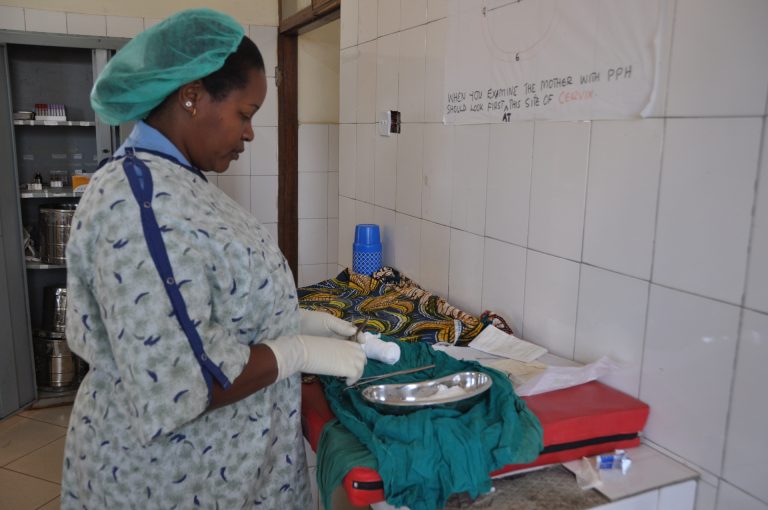
Since her time at the hospital, Strong has already seen improvements to the situation her book describes. Through a national effort, they have updated their medical records system to a digital platform, and the employees for the first time have a wider grasp of their own workplace beyond what they can see in a shift.
This is what Strong began working toward in 2007, when she first visited Tanzania as an undergraduate while attending The Ohio State University. Over the course of several trips, she decided to focus on learning Swahili to better communicate with people related to her newfound research interests in maternal health. While working on her dissertation for her joint PhD from Washington University in St. Louis and the Universiteit van Amsterdam, she decided to focus on maternal death in hospitals, eventually translating and trimming her research on maternal health care into what would become her first book, Documenting Death.
When she first realized she wanted to study maternal health in a new region, Rukwa, in southwest Tanzania, Strong quickly needed to get a hospital to first agree to work with her. Luckily, a friend in the Singida region, the site of Strong’s earlier research in Tanzania, had a sister who worked as a nurse at Mawingu Regional Hospital.
“Coming in and saying you want to study maternal deaths that are happening in a hospital, where they’re supposed to be saving people, is a really sensitive topic because people think you’re going to blame them,” Strong said. “That genuinely was never my intention. It was to understand how the structures of their health care system were preventing them from fully utilizing the skills and knowledge they had.”
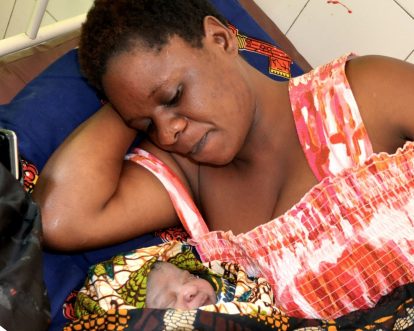
Throughout the book, Strong adamantly stresses the importance of understanding how the system fails both the patients and health care workers.
The extent of the problem can be difficult to comprehend for those in the United States: The ratio of maternal deaths to live births here is 20.1 per 100,000, as reported by the CDC in 2019. In Tanzania, according to the World Health Organization, this ratio is 578 per 100,000. There is a lack of resources and support not only for the patients, but for the workers of the hospital who are forced to make do knowing that if they had more assistance, they could change those numbers.
While observing the hospital, Strong was struck by the profound humanity of the workers as they navigated challenges. “At those moments of negotiation between their needs and those of the patients, they entered into complicated, but sometimes instantaneous, calculations of care,” Strong writes. “Caught in this system, they worked to provide pregnant women with care that was good enough, while also maintaining some semblance of lives for themselves.”
Strong offers short narratives throughout her book providing insight into the lives of the patients who checked into Mawingu Regional Hospital. In the prologue, readers meet Paulina, a young healthy mom of three in good financial status who came to the ward for a standard cesarean delivery, or C-section. Paulina would be deemed the perfect patient, a “veteran” to the process, someone the nurses wouldn’t have to worry about. Her visit should have been as complicated as a game of rock, paper, scissors. Paper beats rock; and a healthy, young mom gets to take her newborn home.
But after more than five hours in the operating room for her C-section, an unsettling feeling took over. Something was wrong — Paulina was hemorrhaging. Because of an insufficient supply of blood and cauterizing equipment and the absence of specialized doctors, Paulina would not make it home that day. Her newborn daughter would wait at the hospital for a family member to come find her while her mother would unfortunately become one of 34 maternal deaths that occurred at Mawingu Regional Hospital between 2014 and 2015 while Strong was there.
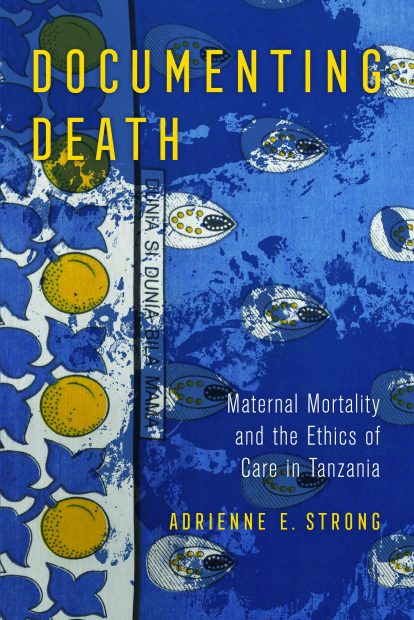
Paulina’s story stuck with Strong because it was the only time the nurses openly expressed their shock and dismay over an unpredictable complication. It raised the questions: Did the nurses realize that the hospital’s maternal mortality ratio (MMR) had been increasing in the past several years? And had they become numb to such tragedy? She would discover the medical staff did not all have access to the maternal death audits and could only account for the deaths they saw. There was no adequate filing system, and with no computers at the time, it was difficult to maintain such records. When Strong asked a nurse how many deaths she believed occurred in the past year, her answer was five. In reality, it was closer to 35.
Strong’s interviews, ethnographic accounts and charging curiosity in Documenting Death exemplify the importance of addressing all perspectives, from patient to professional, to capture the multifaceted areas in which problems arise. Throughout the book, Strong questions which systems outside of the hospital are failing — and therefore worsening situations in a maternity ward that is meant to welcome new life but instead is wallowing in large ratios of death.
While continuing to pursue these questions, Strong received training as a doula, to assist in the physical, emotional and informational support of moms before, during and after childbirth. She has also maintained contact with her friends back in Mawingu Regional Hospital who were curious about life in America — and they remain on her mind.
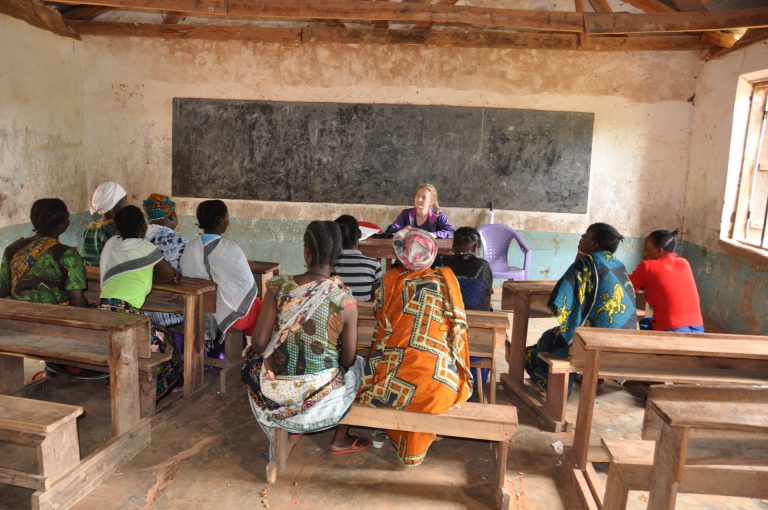
“Just the other day I was at Publix, and just one passionfruit cost $3.99,” Strong said. “I was just thinking, if I told my Tanzania friends that, they would just be totally shocked and also laugh so hard because you can get a whole bucket of passionfruit for maybe a dollar.”
In Documenting Death, Strong stresses the importance of keeping an open mind to approaching difficult, sometimes unsettling, issues.
“I invite you to sit with the feelings that might arise for you as you encounter tragic stories of too-short lives and lives not lived,” Strong writes. “Some of the terms the health care workers use may seem cold or distant, but they offer us clues about the kinds of strategies necessary to cope with work in such a profoundly challenging environment.”
But Strong wants to make it clear, it is OK to feel upset about such knowledge — in fact, that’s the point. Without acknowledging the severity of these issues, how can they properly be addressed?
Without Strong putting herself directly into the situation, the stories of everyone she met at Mawingu Regional Hospital likely would have continued to go unnoticed by many outside of Tanzania.
“If we open ourselves up to learning from the people we’re working with, then it can be a much more transformative experience for everybody,” Strong said. “That’s one of the biggest things that I took away from my work and will carry forward with me.”
*All nurse and patient names are pseudonyms, as well as the name of the hospital.
This story appears in the spring 2022 issue of Ytori Magazine. Read more from the issue.


